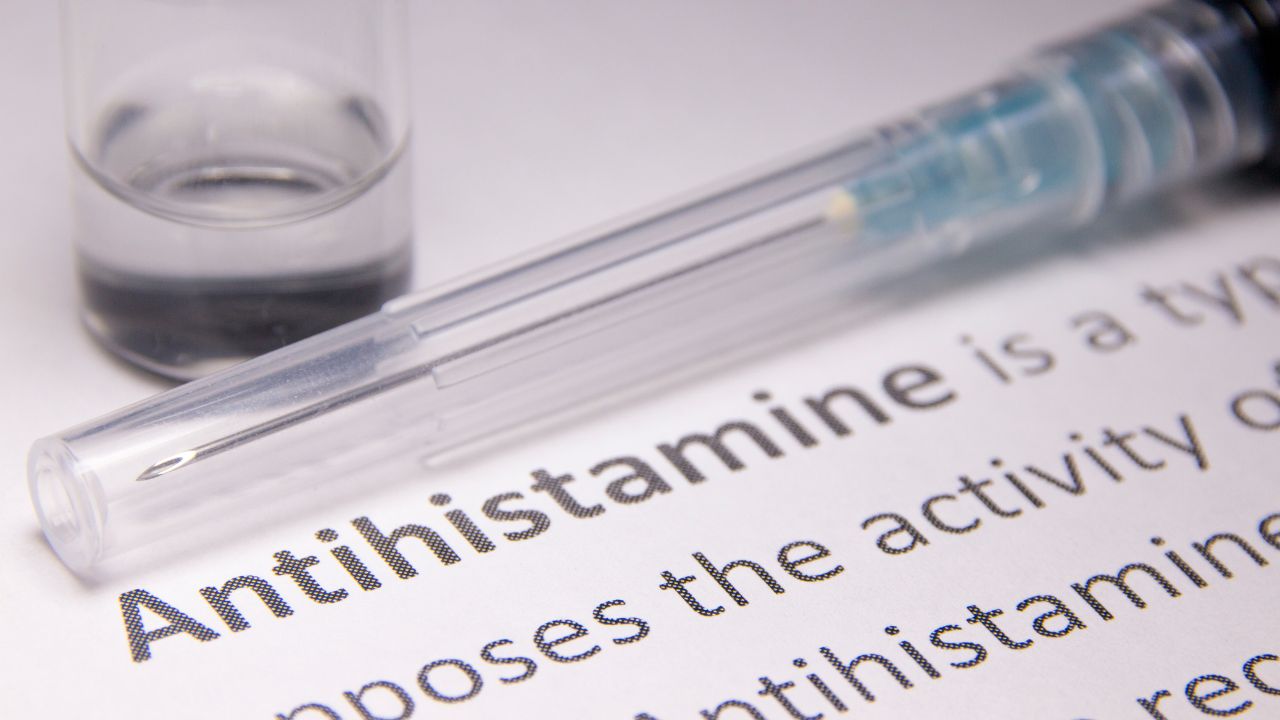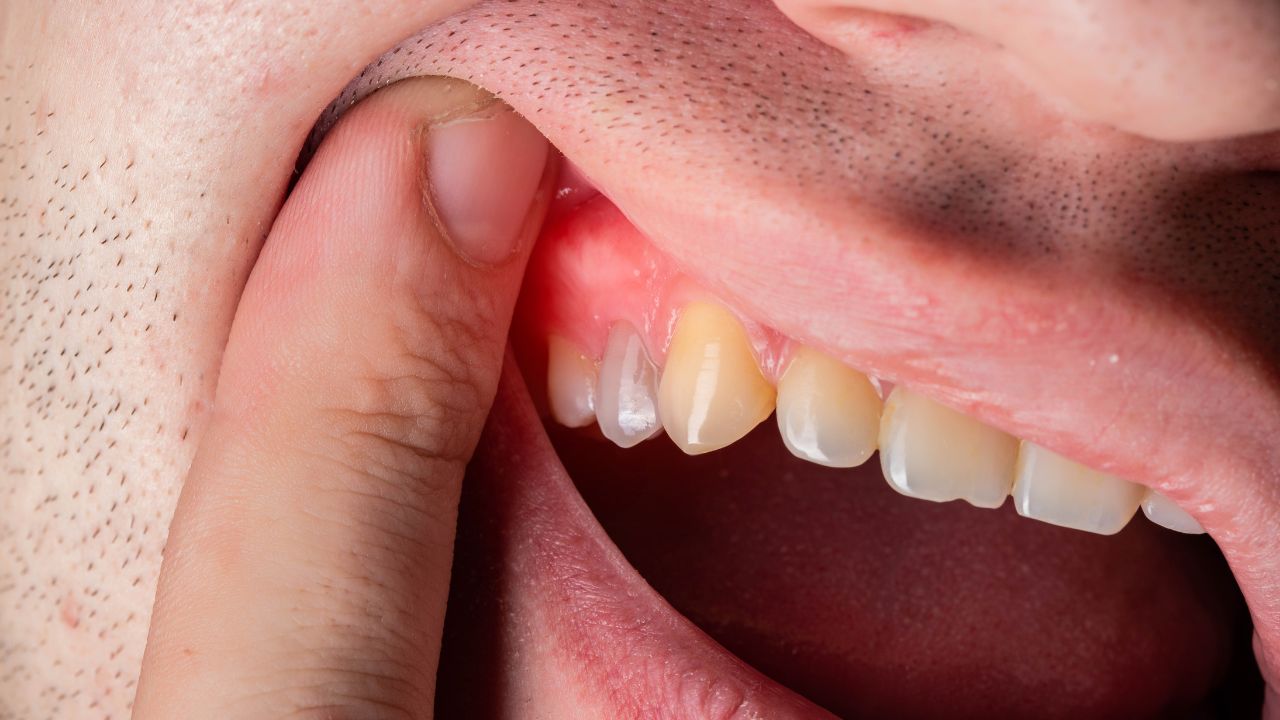Swollen gums are a common dental issue that many people experience at some point in their lives. Due to swollen gums, the gums become swollen, inflamed, and painful, making it difficult to chew and brush properly.
- Swollen gums can result from a variety of factors, including:
- Poor oral hygiene
- Pregnancy
- Certain medications
- Trauma or injury to the gums
- Malnutrition
- Allergic reactions to food or dental products
While these are some common reasons for swollen gums, there are other possible causes that a dental professional could identify. That’s why you must consult a dentist if you experience swollen gums. A dentist can help diagnose the cause of your swollen gums and provide the appropriate treatment to relieve discomfort and prevent further complications.
This article will discuss everything about swollen gums and treatment options. However, if you’re experiencing swollen gums, it’s important to seek dental care as early as possible. Delaying treatment can lead to severe complications like tooth pain, tooth loss and gum disease.
Top 7 Causes of Swollen Gums
Swollen gums can be a result of various factors. Here are the top 7 reasons for gum swelling:
- Poor oral hygiene and the development of gingivitis and periodontitis: Neglecting oral hygiene can lead to the buildup of plaque, which can cause inflammation and irritation of the gums. This can progress into gingivitis and eventually periodontitis, leading to swollen and bleeding gums.
- Pregnancy and hormonal changes: Changes in hormone levels during pregnancy can affect the body’s response to oral bacteria, leading to gum inflammation.
- Medications and their side effects: Certain medicines like anticonvulsants, immunosuppressants, and calcium channel blockers can cause gum swelling as a side effect.
- Injury and trauma to the gums: Physical injury, for example, accidentally biting the inside of the mouth, can cause swelling.
- Malnutrition and vitamin deficiencies: A lack of proper nutrients, especially vitamin C, can lead to weakened gums that are susceptible to swelling and bleeding.
- Allergic reactions to food or dental products: Some people may have allergic reactions to certain foods or dental products, leading to gum inflammation and swelling.
Although the above-listed conditions can cause swollen gums, one of the most common reasons gums swell is due to colds and viruses. The common cold and other viral infections can cause inflammation and irritation of the nasal passages, sinuses, and throat. This can lead to increased mucus production and a subsequent buildup of bacteria in the mouth, which can then cause swollen gums.
It is important to note that the exact mechanism by which colds and viruses cause swollen gums is still not completely understood. However, research suggests that the immune systems’ response to infections can contribute to gum inflammation.
How Colds or Viruses Can Cause Swollen Gums
When it comes to swollen gums, many people may not realize that a cold or virus can be one of the underlying causes. So how exactly can a cold or virus cause swollen gums?
Why Do Your Gums Hurt When You are Sick?
When you are sick, your immune system works overtime to fight off the virus or bacteria causing your symptoms. For example, your immune system responds to a cold or virus by releasing white blood cells to surround and protect the injured area. The white blood cells (T-helper) also release chemicals to help fight off the virus. Unfortunately, the chemicals can cause spaces to get inflamed. This can lead to inflammation and swelling in the gums.
The Relationship Between Nasal Congestion and Gum Inflammation
Nasal congestion is a common symptom of a cold or virus. When you are congested, you may breathe through your mouth more often, which can cause your mouth to become dry. A dry mouth can lead to bacteria and plaque buildup, leading to gum inflammation and swelling.
Can Cold and Flu Remedies Make Gums Swollen?
Some common cold and flu remedies may contribute to swollen gums:
Decongestants
Decongestants are a popular remedy for nasal congestion caused by cold or flu. However, some decongestants can cause dry mouth, which can cause the gums to become swollen and uncomfortable. Therefore, it is important to use decongestants as directed and not exceed the recommended dosage.
Antihistamines

Antihistamines relieve symptoms such as sneezing, runny nose, and itchy eyes. However, they can also cause dry mouth, leading to gum inflammation and swelling. So again, it is important to use antihistamines as directed and not exceed the recommended dosage.
Cough drops and lozenges
Some cough drops and lozenges contain high levels of sugar, which can contribute to bacterial growth in the mouth, leading to gum inflammation and swelling. Look for sugar-free alternatives or consult your dentist to find the best option.
The Connection Between Antihistamines and Dry Mouth
Antihistamines are commonly used to relieve cold and allergy symptoms such as a runny nose, sneezing, and itchy eyes. However, one of the side effects of antihistamines is dry mouth. A dry mouth can lead to a lack of saliva, which is necessary for maintaining good oral health. Saliva helps wash away food particles and bacteria and neutralizes acids in the mouth. Without enough saliva, the mouth can dry and irritate, increasing the risk of gum disease and tooth decay.
In addition to dry mouth, antihistamines may cause other side effects contributing to gum swelling, such as dizziness and nausea. Therefore, it is essential to consult with a healthcare professional before taking any medication, especially if you have a history of gum disease or other oral health issues. If you are experiencing gum swelling or other unusual symptoms while taking antihistamines, speak to your doctor to determine the best course of action.
The Effect of Decongestants on the Gums
Decongestants are another medication commonly used to relieve symptoms of colds and allergies. They work by constricting the blood vessels in the nasal passages, which reduces swelling and congestion. However, this constriction can also affect blood vessels in other body areas, including the gums.
The reduced blood flow to the gums can cause them to become dry and irritated. Dry gums can make it difficult to swallow or speak and be more susceptible to infection. In some cases, decongestants can even cause a decrease in saliva production, which can further contribute to dry mouth and gum inflammation.
Remedies for Swollen Gums
If you’re experiencing swollen gums, you can try a few remedies at home before seeking professional dental care. Here are a few options:
Home Remedies:
- Saltwater rinses: Mix a teaspoon of salt into a glass of warm water and rinse your mouth with it. This can help reduce inflammation and soothe the gums.
- Tea tree oil: Mix a few drops of tea tree oil with carrier oil, like coconut oil, and apply it to the affected area. Tea tree oil has anti-inflammatory properties that can help reduce swelling.
- Aloe vera: Apply a small amount of aloe vera gel to the affected area. Aloe vera has antibacterial and anti-inflammatory properties that can help reduce inflammation.
Over-the-counter Options:
- Anti-inflammatory medications: Over-the-counter medications like ibuprofen or aspirin can help reduce swelling and inflammation.
- Mouthwashes: Mouthwashes that contain hydrogen peroxide or chlorhexidine can help reduce inflammation and fight bacteria.
When to Seek Professional Dental Care:
If your swollen gums persist even after trying home remedies or over-the-counter options, it’s time to seek professional dental care. Your dentist can help determine the underlying cause of your swollen gums and recommend the appropriate treatment. Additionally, if you’re experiencing other symptoms like fever, difficulty swallowing, or severe pain, it’s important to seek dental care as soon as possible.
Monroe Family Dentistry – Treatment For Swollen Gums
In conclusion, swollen gums can be caused by various factors, ranging from poor oral hygiene to colds and viruses. Identifying the underlying cause of the swelling is crucial to treat it effectively. At Monroe Family Dentistry, our experienced dental team offers treatments for swollen gums, including professional cleaning, scaling, and root planing. Additionally, we guide maintaining good oral hygiene habits to prevent future gum swelling.
Remember to consult a dentist if you are experiencing swollen gums. Some home remedies may not be suitable for your specific condition, and professional dental care may be necessary to treat the underlying cause of your swollen gums effectively.
Maintaining good oral health, including brushing and flossing regularly, and visiting the dentist for regular check-ups and cleanings, is crucial in preventing gum swelling and other oral health issues. So don’t neglect your oral health; schedule an appointment with Monroe Family Dentistry today.
Our Dental Practice in Monroe, NC
Monroe Family Dentistry is there for you and your children from day one and we are happy to work with you and your child to start habits from birth. If you live near Monroe, NC call us to schedule an appointment today at 704.776.4278.
These are just some of the services we provide. To learn more about our dental practice in Monroe NC and the services we provide, call us or submit an appointment request.





